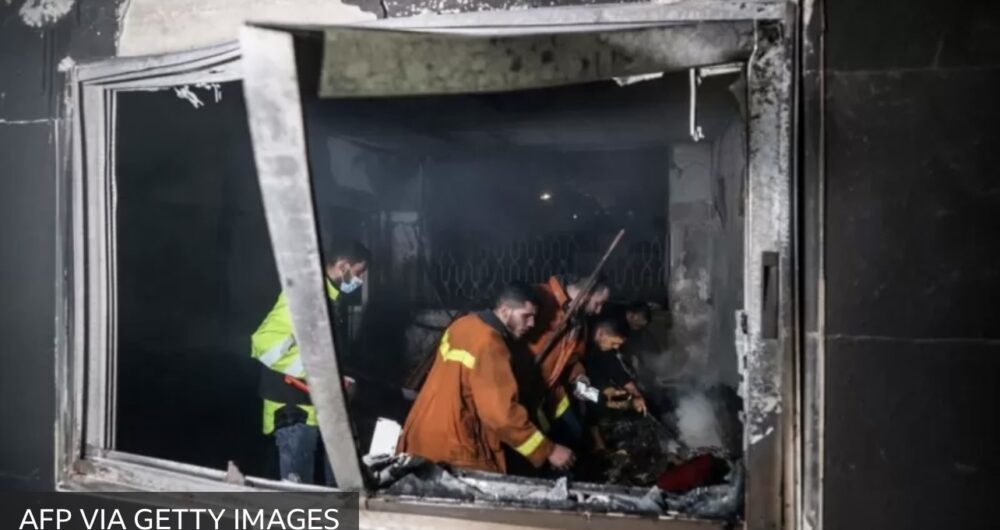At least 21 people – including 10 children – have been killed by a fire in a building in a densely populated refugee camp in the Gaza Strip, a hospital director has told the BBC.
The number of deaths at Jabalia refugee camp following the fire – which is now under control – is likely to rise, Dr Salah Abu Laila added.
A local security official told the BBC an initial investigation suggested there was a gas leak from a kitchen.
Jabalia is one of eight camps in Gaza.
Dr Abu Laila, director of emergency services at the Indonesian Hospital in north Gaza, described the fire as “huge”, with videos on social media showing the entire building engulfed in flames.
People were seen screaming outside the burning building, while relatives of victims were in the streets crying and praying.
One local resident who rushed to the scene said that gasoline was stored in the building to “operate a generator”.
An eyewitness told the BBC: “It is very difficult, children and women burning without the possibility of saving them.”
According to the security official, the family had been celebrating the return of one of their relatives from abroad.
The West Bank-based Palestinian President Mahmoud Abbas called it a national tragedy and announced a day of mourning on Friday.
Israeli Defence Minister Benny Gantz tweeted that his staff would assist with “humanitarian evacuations of the injured to (Israeli) hospitals”.
Deadly fires – often caused by candles – have become a regular occurrence in Gaza because of severe power shortages. These are linked to the blockade imposed on the territory by Israel and Egypt as a security measure against militants there, and internal Palestinian political disputes.
Gaza is home to 2.3 million people, one of the highest population densities in the world. According to the UN, almost 600,000 refugees in Gaza are living in eight crowded camps.
On average, there are more than 5,700 people per square kilometre – very similar to the density of population in London – but that figure rises to more than 9,000 in Gaza City.
Image source: BBC News




